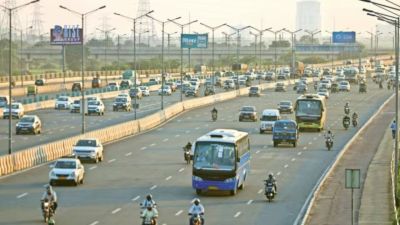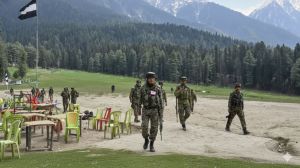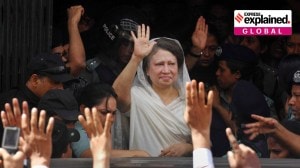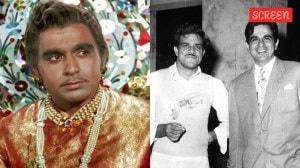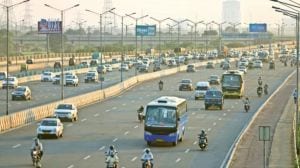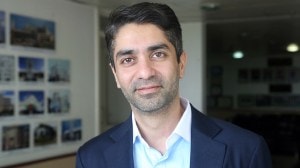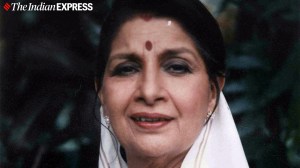Why Raj Thackeray blew it
The migrant, searching for hope in Mumbai, could have been his perfect vote bank. Ask my two daughters

I met Raj Thackeray in his formidable fortress in Shivaji Park, Dadar, a couple of years ago, accompanied by two Bollywood celebrities from the land of Pataliputra, Prakash Jha and Shekhar Suman, just when the initial hullabaloo over railway recruitments had surfaced. There were several protestations, vitriolic statements, all of it deliberately incendiary, of course. Mumbai seemed headed for a most unwarranted confrontation, and even then the UP 8220;bhaiyyas8221; were the principal targets.
Once again, thanks to an essentially gullible electronic media and an impressionable public being swayed by malicious propaganda, it has assumed unnerving proportions. This time, unless intelligently addressed, the 8216;outsider8217; conflict carries an implied threat of a permanent mental divide 8212; simmering discontent that can, provoked by political expediency, boil over. The last thing a growing India needs right now is social unrest caused by regional parochialism. It will be akin to committing hara-kiri.
Raj Thackeray was extremely warm, instinctively sharp, and came across as a terrific listener. He has all the necessary attributes that make for a charismatic leader. Over vegetable burgers and finger chips, I discovered that Raj seemed particularly perturbed about the bad driving habits of cabbies, the casual impertinence with which they flouted traffic signals or parked their taxis. He seemed violated by these indiscretions, as if a sacrosanct territory was being usurped by aliens. To give Raj credit, one can empathise with his discomfiture on this subject. But does the solution lie in a violent purge? In political vendetta? Or does it need greater social assimilation? Therein lies Raj8217;s essential predicament.
In Mumbai8217;s chatterati, overtly obsessed with 8220;Basket Case Bihar Dragging Us Down8221;, Lalu Prasad Yadav is still perceived as a bumpkin with 8220;rustic8221; common sense. All Biharis are seen as manual labour. Over the last 16 years I have lived in Mumbai, I have heard discourses on Bihar by those who know as much about Bihar as Icelanders know about Rakhi Sawant. For them, life begins with the opening price and ends with the closing value of a Reliance share. And their exposure to the real India comes at a traffic light or from silly gossip columnists faking their insight.
Has anyone ever really asked as to how the desperate migrant, barely surviving mortal combat with abject poverty, is forced to flee homewards, overnight destroying his years of livelihood? Let me give you the example of my driver from Uttar Pradesh. Radheshyam, who has an uncanny Omkara-like profile, wakes up at 5 am to ensure that he stores enough water before the taps dry up, cooks his breakfast, packs his lunch dabba, and around 7 am walks 20 minutes to his nearest suburban station. He boards a local train, packed in like a suffocated sardine layer.
After an hour of this asphyxiating ordeal, he lands at another central terminus. He then waits for another train, which is by now even more densely crowded. Another 30 minutes later, he alights at Dadar, perspiration being the only glue for multi-regional commuters. Radheshyam now changes tracks to the western line, and after about 15-20 minutes reaches his final destination. To save on bus fare, he then walks 20 minutes to start his official daily routine. The return journey is, understandably, the same drudge, accentuated by even heavier human traffic. This is his daily routine. He is lucky if he gets five hours of sleep.
By conventional average pay-outs, Radheshyam earns a reasonable sum, but I am aware that a single drinks-dinner-dessert for four in an upmarket restaurant will be equal to his monthly salary. Besides living in squalid conditions, he saves half of that modest earning for his impoverished family back home, himself surviving on the residual balance. He barely sees them for a maximum of two months in a year. He will never see his children grow up. He will never know what family life is all about. Let me ask you, is this man and several others like him threatening the social fabric of Maharashtra? Does he harbour any ill-will towards his fellow neighbours? Is he the nasty grievous threat that he is made out to be?
In a way, I am my own migrant story. I grew up in the Pune of the early 8217;70s, when visiting MG Road by the local residents was a rare monthly outing, since it was seen as far too cosmopolitan and hip-hop an address, influenced by a cross-cultural liberal mix, owing to the ubiquitous members of our defence services. But Deccan Gymkhana, and its precincts in proximity, was home. I understand Raj Thackeray8217;s anguish over the disintegrating Pune culture, because it embodied the 8216;Maharashtrian spirit8217;. The old-fashioned wadas, the delicious thali joints, Balgandharva Theatre, lavani dances on standstill trucks at street corners, the Chatursinghi annual mela, family picnics in Shivaji Park, and Joshi8217;s inimitable batata vada. The same is being fast replaced by a Barista, shopping malls, Punjabi cuisine serving Chinese variations, multiplex chains, and mindless real estate construction. Pune is undergoing a socio-cultural fragmentation for sure. But what has the rank outsider looking for gainful employment done to threaten the local man or politician? The two issues are as distinct and different as Andrew Symonds and Prakash Karat. These are natural ramifications of urban growth in a fast-growing economy.
I also think identity politics takes itself too seriously. When I mishandle the fork in an uppity restaurant, my daughters say, 8220;Dad, stop behaving like a Bihari.8221; I laugh. They laugh too. And since the joke is on me, my wife laughs the loudest. She is quasi-Maharashtrian, her grandfather not just one of the founders of modern industrial India but a symbol of regional pride. His home base was Maharashtra. My girls have a Bihari surname, speak fluent Marathi and have yet to visit my birthplace Bhagalpur, or see Patna where their grandfather once taught economics. They are two girls growing up in Mumbai, they are Indians, nothing else matters. And why should it?
If a Barack Hussein Obama can capture the conservative American imagination, and seek political change, you know that there is an imperceptible drift in thinking, a subtle but definitive reminder that people are not looking for token reforms. They are expecting a dramatic transformation. They want a world where your surname, your accent should not matter. The age of status quo is dying, if not dead. They want an upheaval, a metamorphosis. They will experiment.
For the Thackeray family, paradoxically enough, the UP-Bihari migrants should have been the ultimate vote bank just see how Hillary Clinton woos the NRIs. Because contrary to their image of being armed dacoits, mercenaries and cheats, Biharis, conditioned by years of servitude and social inferiority, economic deprivation and isolation, have prodigious respect for their hosts, for their benefactors. For anyone who gives them a ray of hope. I see that every day in Radheshyam. I think the Shiv Sena and MNS may have just blown away one of their core options for 2009.
So let us quit this myopic fixation of making Mumbai a Shanghai. The story does not lie in hard infrastructure, software parks, nightlife and a financial business district alone. It lies in its soul. Its energy. Its inclusiveness. Perhaps Mumbai needs to be more like New York, not just a city of India but a city of the different worlds that is India.
The writer is executive director, Dale Carnegie Training India jhasvsnl.com
- 01
- 02
- 03
- 04
- 05


